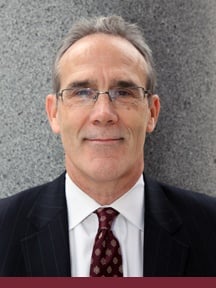
Written by Dr. Michael Williams
 By Dr. Michael Williams • June 18, 2013
By Dr. Michael Williams • June 18, 2013
The role of human resource management in modern corporations is rapidly changing. Over the past decade, business leaders have either eliminated or outsourced human resource management functions that do not enable business-centered, human capital strategies. In response, a paradigm shift is occurring requiring human resource management professionals' to reskill; replacing reactive, low value transactional human resource functions with proactive, high-value business enhancing strategic contributions focused on business growth and sustainability.
A key component of business growth and sustainability is human capital acquisition and retention. In their seminal article Talentship and the Evolution of Human Resource Management: From Professional Practices To Strategic Talent Decision Making (2004), authors John W Boudreau and Peter M. Ramstad offer "The value and importance of human capital, or talent, is increasingly obvious to business leaders, yet they are increasingly frustrated by the current state of human resource (HR) management." The authors continue "People, intellectual capital and talent are ever more critical to organizational strategic success."
In order to meet the growth and profitability requirements of contemporary business operations, human resource management professionals must understand and incorporate the talent engagement strategies and tactics articulated in the emerging discipline of human capital management. Innovative human capital management concepts and practices, such as decision science, talentship and HRM-based metrics form the new cornerstones for professional reskilling for contemporary human resource management professionals. Central to this reskilling is earning a master's degree in human resource management offering a curriculum that incorporates the key concepts and practices associated with human capital management.
A master's degree in human resource management can offer an integrated business, human resource management and human capital management curriculum focused on reskilling human resource professionals. Courses including Strategic Recruiting, Retention and Succession Planning, Intellectual Capital and the Workplace Learner and Managing the Human Resources Enterprise provide key theories, models, and practices associated with human capital management that position human resource professionals to survive and thrive in the 21st century global business environment.
Authors Boudreau and Ramstad observe that the current state of the human resource management industry requires "significant improvements in HR decisions [and] will be revealed not by applying finance and accounting formulas to HR programs and processes, but rather by learning how these fields evolved into the powerful, decision-supporting functions they are today. Their evolution provides a blueprint for what's next for HR."
Increasingly, human resource management practices are incorporating the theories, models and tools associated with human capital management. As the human resource management industry evolves, its transition toward a future state will determine professional effectiveness and acceptance in industry. Human resource management professionals need to anticipate the context and content of this future state and acquire the knowledge, competencies and skills necessary in order to be successful.

Written by Dr. Michael Williams